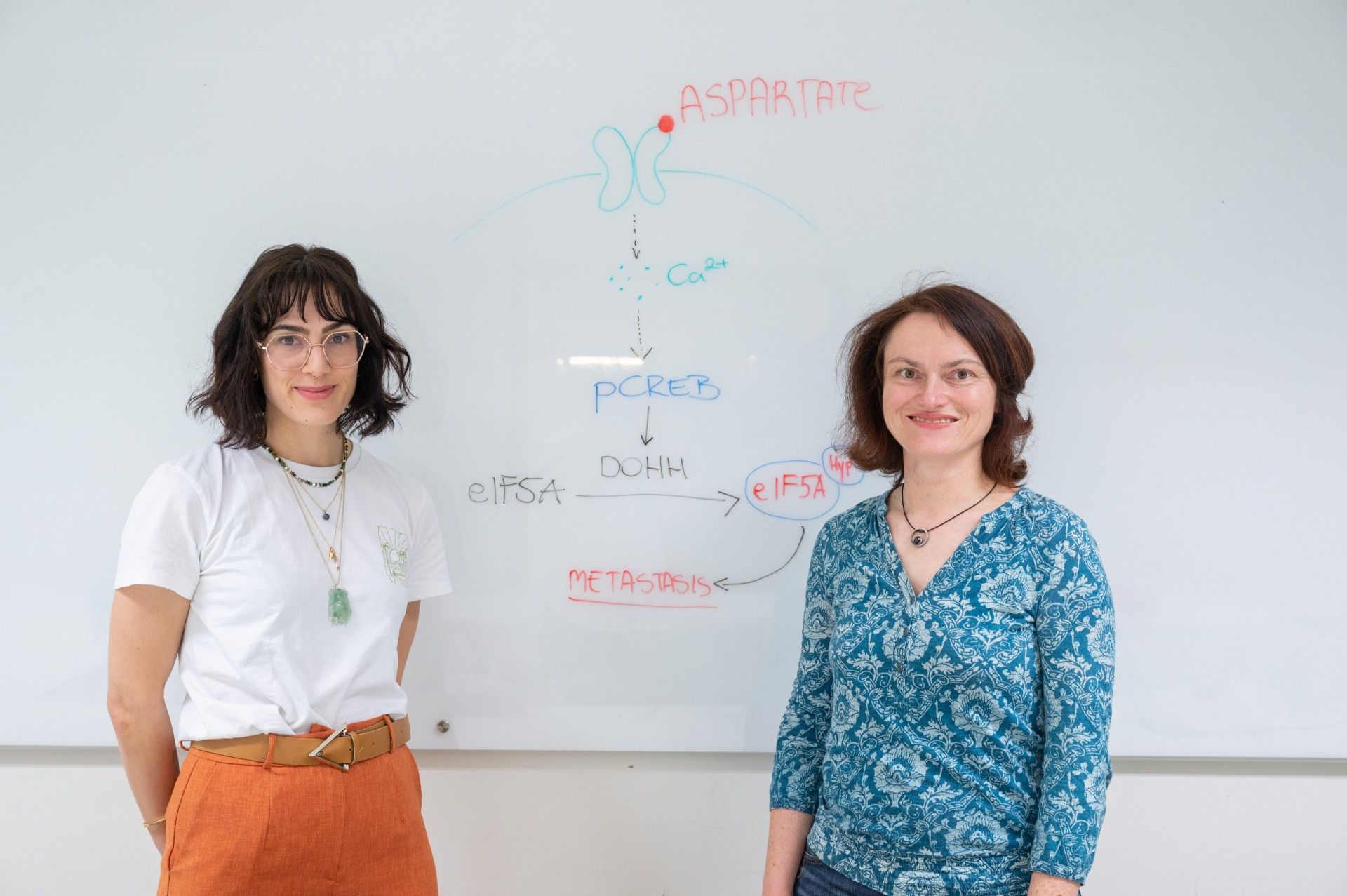Researchers reveal why the lung is a frequent site of cancer metastasis
The availability of the amino acid aspartate is one reason why the lung is a frequent organ of metastasis
Leuven, 2 January 2024 – Researchers from the lab of Prof. Sarah-Maria Fendt (VIB-KU Leuven) and colleagues have uncovered that the availability of the amino acid aspartate is one reason why the lung is a frequent organ of metastasis. Their work appears in Nature and improves our understanding of cancer biology while providing the foundation for new therapeutic interventions in metastatic diseases.
A role for aspartate
More than half of cancer patients in whom the cancer spreads beyond the primary site have lung metastases. What makes the lungs such a tempting place for cancer cells?
To find out, the team of Prof. Sarah-Maria Fendt (VIB-KU Leuven Center for Cancer Biology) and colleagues investigated the gene expression in cells from aggressive lung metastases. They found evidence for an alternative ‘translation program.’ What does this mean? Translation is the process that uses our genetic code as a blueprint to make proteins in cells. A change in the translational program results in a set of different proteins that allow cancer cells to grow easier in the lung environment.
But what starts this alternative translational program in aggressive metastases?
Ginevra Doglioni, PhD student at the Fendt lab and first author of the study says “We found high levels of aspartate in the lungs of mice and patients with breast cancer compared to mice and patients without cancer, which suggests that aspartate may be important for lung metastasis”
Aspartate is an amino acid (a protein building block) that has very low concentrations in blood plasma but, surprisingly, very high concentrations in the lungs of mice with metastatic breast cancer.

Starting the translational program
Many proteins in our bodies can affect the translation process, among them the so-called initiation factors. One such initiation factor is eIF5A, which kickstarts translation. In the cells of cancer cells within lung metastases, the researchers found an activating modification to eIF5A called ‘hypusination’, which was associated with higher cancer aggressiveness of lung metastases.
Does aspartate have something to do with this?
Yes, it does! The researchers discovered that aspartate triggered this modification on eIF5A through an unexpected mechanism. Surprisingly, aspartate was not taken up by the cancer cells. Instead, it activated a cell surface protein called an NMDA receptor in cancer cells, leading to a signaling cascade that, eventually, triggered eIF5A hypusination. This subsequently drives a translational program that enhances the ability of cancer cells to change their environment and make it more suitable for aggressive growth.
Looking at human lung tumor samples from patients with metastatic breast cancer, the scientists noted a similar translational program as in mice and an elevated expression of the NMDA receptor subunit that binds aspartate compared to metastases from other organs.
Prof. Fendt explains, “This correlation emphasizes the relevance of the findings in a clinical context and suggests that aspartate signaling may be a common feature of cancer cells growing in the lung. Moreover, there are drugs available to target the mechanism we identified and thus with further research a translation toward a clinical setting might be possible.”

Publication
Aspartate signaling drives lung metastasis via alternative translation. Doglioni et al. Nature, 2024.
Funding
This research was supported by FWO, Kom Op Tegen Kanker, Stichting tegen Kanker, Beug Foundation, King Baudouin Foundation, Fonds Baillet Latour, Francqui Stichting, Foundation ARC, and KU Leuven.
Questions from patients
A breakthrough in research is not the same as a breakthrough in medicine. The realizations of VIB researchers can form the basis of new therapies, but the development path still takes years. This can raise a lot of questions. That is why we ask you to please refer questions in your report or article to the email address that VIB makes available for this purpose: patienteninfo@vib.be. Everyone can submit questions concerning this and other medically oriented research directly to VIB via this address.
Gunnar De Winter



